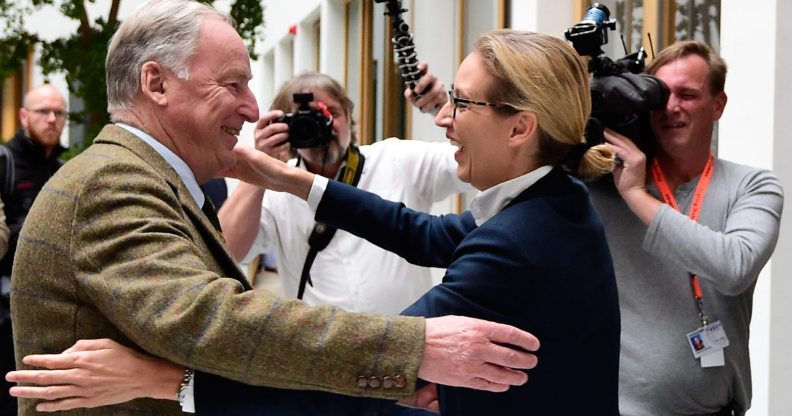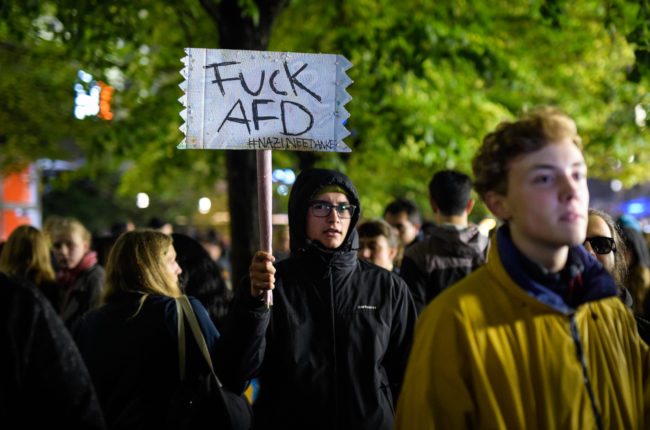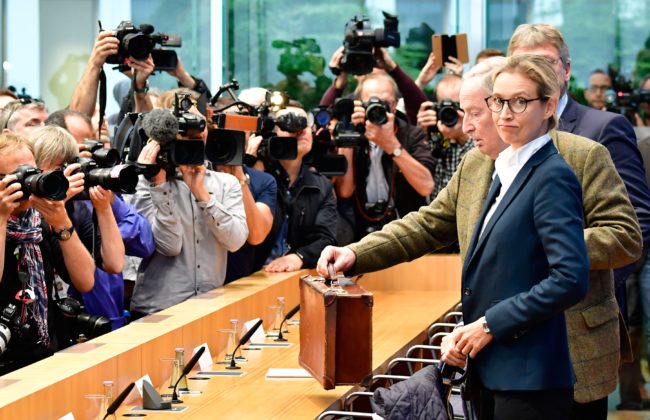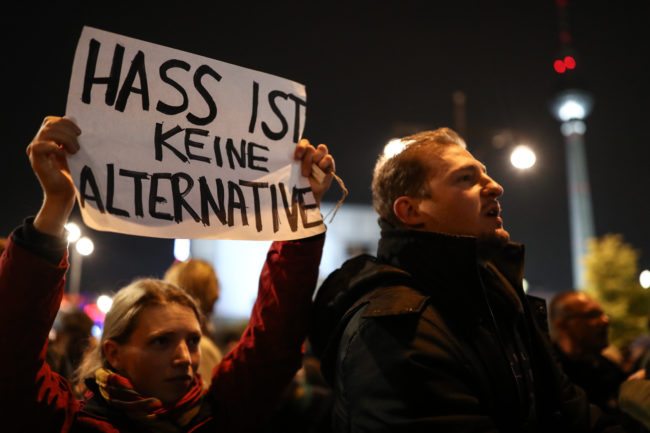Anti-gay far-right party will enter Germany’s parliament for the first time in more than 50 years

(Getty)
Germany’s far-right anti-gay party has won seats in the country’s Parliament for the first time in more than half a century.
Alternative für Deutschland, which is staunchly opposed to same-sex marriage and adoption, has become the third largest party in Germany just four years into its existence.
Chancellor Angela Merkel, who oversaw the legalisation of same-sex marriage earlier this year despite voting against it, will remain in office for a fourth term.

(Getty)
Her Christian Democratic Union party won 217 seats, more than any other, though it was the party’s worst result since World War II.
The AfD picked up 13.3 percent of the vote in Sunday’s election, which will earn it 88 seats in the Bundestag.
AfD, which rose to popularity on the back of its extreme anti-Muslim, anti-immigrant views,
was led into the election by openly lesbian politician Alice Weidel.
The 38-year-old was leading the party when it announced it was planning a legal challenge to the first step towards the legislation of same-sex marriage earlier this year.
Weidel, who has two children with her same-sex partner, has always dismissed accusations of hypocrisy for backing an anti-same-sex adoption party.

(Getty)
Same-sex adoption is also legal now, with same-sex couples enjoying all the rights connected to existing marriage laws.
Though she is gay, Ms Weidel is far from an LGBT activist, declaring that “political correctness belongs on the rubbish heap of history.”
Alexander Gauland, the AfD’s top candidate, told those at the party’s headquarters in Berlin: “This is a great day for our party political history.
“We are entering the Bundestag for the first time and we will change this country,” he added, according to the Guardian.
Gauland said his party would “hunt” Merkel over her refugee policy.

Protesters with a sign reading: “Hate is no alternative” (Getty)
“We will take our people and our country back,” he continued.
The election represents a backwards step for Germany, though the result must be placed in the context of the rise in popularity of the far-right in many countries across the west.
In France, anti-LGBT far-right candidate Marine Le Pen came second in May’s presidential election, gaining 34 percent of the vote in a run-off with now-President Emmanuel Macron.
And of course, the US has a president in Donald Trump who has repeatedly shied away from condemning Nazis, made moves to ban trans people from serving in the military and prompted Ellen DeGeneres to call him “dangerous” to LGBT people and the world.

